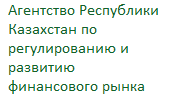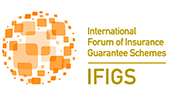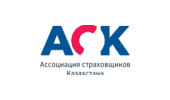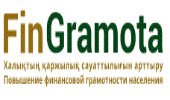Forum results
KAZAKHSTAN INSURANCE FORUM 2025
TRANSFORMATION OF THE INSURANCE MARKET: NEW OPPORTUNITIES, TECHNOLOGIES AND GUARANTEES
On August 18, the Kazakhstan Insurance Forum 2025 took place in Almaty - one of the key financial sector events of the year, bringing together representatives of the insurance industry, international organizations, regulators, and guarantee funds from 27 countries. Held during Kazakhstan's chairmanship of the International Forum of Insurance Guarantee Schemes (IFIGS), the forum served as a platform for strategic dialogue about the future of insurance - not only as a financial service, but as an institution of public trust and resilience.
The forum was officially opened by Madina Abylkassymova, Chair of the Agency for Regulation and Development of the Financial Market of the Republic of Kazakhstan (ARDFM), Olzhas Ashkeyev, Chairman of the Insurance Payment Guarantee Fund (IPGF), and Vitaly Tutushkin, Deputy Chairman of the National Bank of Kazakhstan. In her opening remarks, Madina Abylkassymova emphasized that Kazakhstan is entering a new stage of insurance market development - with a focus on digitalization, the expansion of voluntary insurance, and improving financial literacy.
Speaking on behalf of the forum’s organizer - the Insurance Payment Guarantee Fund, Olzhas Ashkeyev outlined the current strategic priorities: strengthening the resilience of the insurance sector, developing guarantee systems, and enhancing international coordination amid global challenges. Vitaly Tutushkin underlined the importance of such forums in shaping common approaches to financial stability and managing systemic risks.
The discussion of key trends began with a panel session on the role of regulation in a transforming industry. Madina Khadzhiyeva, Deputy Chair of ARDFM, noted that effective regulation today is not only about control, but also about enabling innovation to benefit consumers. Elena Bakhmutova, Chair of the Association of Financiers of Kazakhstan, underscored the importance of supporting voluntary insurance, developing micro-insurance products, and improving transparency in communication with clients. International participants -Jarl Kure (Danish Financial Supervisory Authority, EIOPA),Leyla Guliyeva (Central Bank of Azerbaijan), and Herve Odjo (ODJO Actuaire Conseil) - shared supervisory frameworks with a focus on stress testing and comprehensive risk assessment.
One of the most discussed topics was the current state and future of motor insurance. According to ARDFM, there are over 6.6 million mandatory motor third-party liability insurance (MTPL) policies in Kazakhstan, yet the loss ratio has reached 96%, with some insurers exceeding 100%. In 2024 alone, approximately KZT 92 billion in claims were paid, with over 19,000 cases resolved through the Europrotocol mechanism. Serikbosyn Tolebekov identified a key issue: tariffs do not reflect actual risk, undermining system sustainability.
Proposed solutions included telematics-based models, personalized pricing, and behavioral analytics. Italian expert Sergio Desantis presented European approaches where premiums are determined by driving style. Linara Anuarbekova from the State Credit Bureau of Kazakhstan introduced a system for early identification of high-risk clients. Insurance Ombudsman Igor Yakovenko noted that 85% of complaints are resolved pre-trial, largely due to digital tools and the development of the Unified Insurance Database (UID).
Another highlight was a presentation by Marina Shchuklinova (Azuria Partners) on combined insurance products. Using an Australian market case, she demonstrated how integrating life, critical illness, and service elements, such as telemedicine, patient support, and personal assistance, can increase profitability, reduce loss ratios, and boost customer loyalty. This model, she suggested, could become a new standard for insurance solutions in Kazakhstan.
Healthcare insurance was the focus of a dedicated session moderated by Professor Vyacheslav Lokshin. Saule Tazhibayeva, Deputy Chair of the Social Health Insurance Fund, stressed that private insurance should complement, not compete with, the mandatory system - particularly in areas like critical illnesses. Compelling examples were presented - from the case of a patient who received high-tech treatment abroad covered by a corporate insurance policy, to data showing annual healthcare inflation exceeding 20%. Representatives of BCC Life, Gulzhan Jaksymbetova, and “MOI Insurance Broker,” Gaukhar Kasymkanova, emphasized the importance of engaging employers as a key distribution channel for health insurance programs. Edward Vakhtangishvili from the Georgian regulator presented successful hybrid models involving both public and private sectors.
The final session focused on insurance guarantee schemes - the "last line of defense" in the insurance ecosystem. Representatives from Assuris (Canada) - Ms.Stephanie Greer and Mr.Lambert Ex-Ignotis, PIDM (Malaysia) - Ms.Afiza Abdullah, International Association of Deposit Insurers - Ms.Eva Hupkes, The Australian Prudential Regulation Authority - Mr. Petar Rajic, and the Central Bank of Ireland - Mr.Hugo Slevin emphasized the shift from passive compensation models to active preventive strategies. Guarantee systems, they noted, must not only reimburse losses but also prevent systemic fallout during crises. Kazakhstan was recognized as a developing market actively implementing elements of a resilient approach.
As a result of the forum, four strategic directions were identified to shape the future agenda:
• Development of a digital infrastructure;
• Strengthening mechanisms for health insurance;
• Transition to fair and sustainable motor insurance models;
• Institutional enhancement of guarantee schemes.
Kazakhstan Insurance Forum 2025 sent a clear message: insurance is not merely about risk - it's about solutions. About resilience. About confidence in the future. And it was here, in Almaty, that the tone was set for these new standards.











